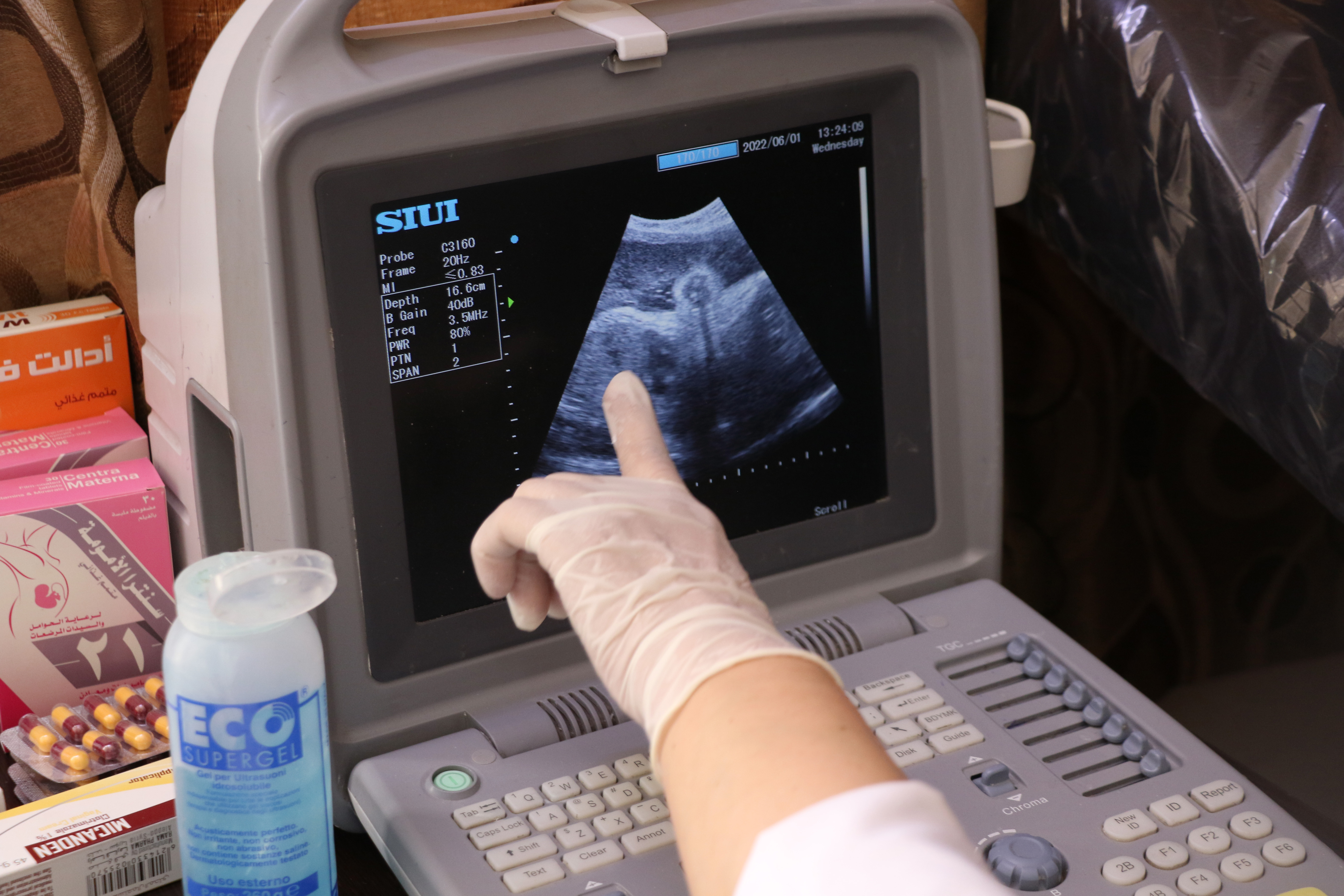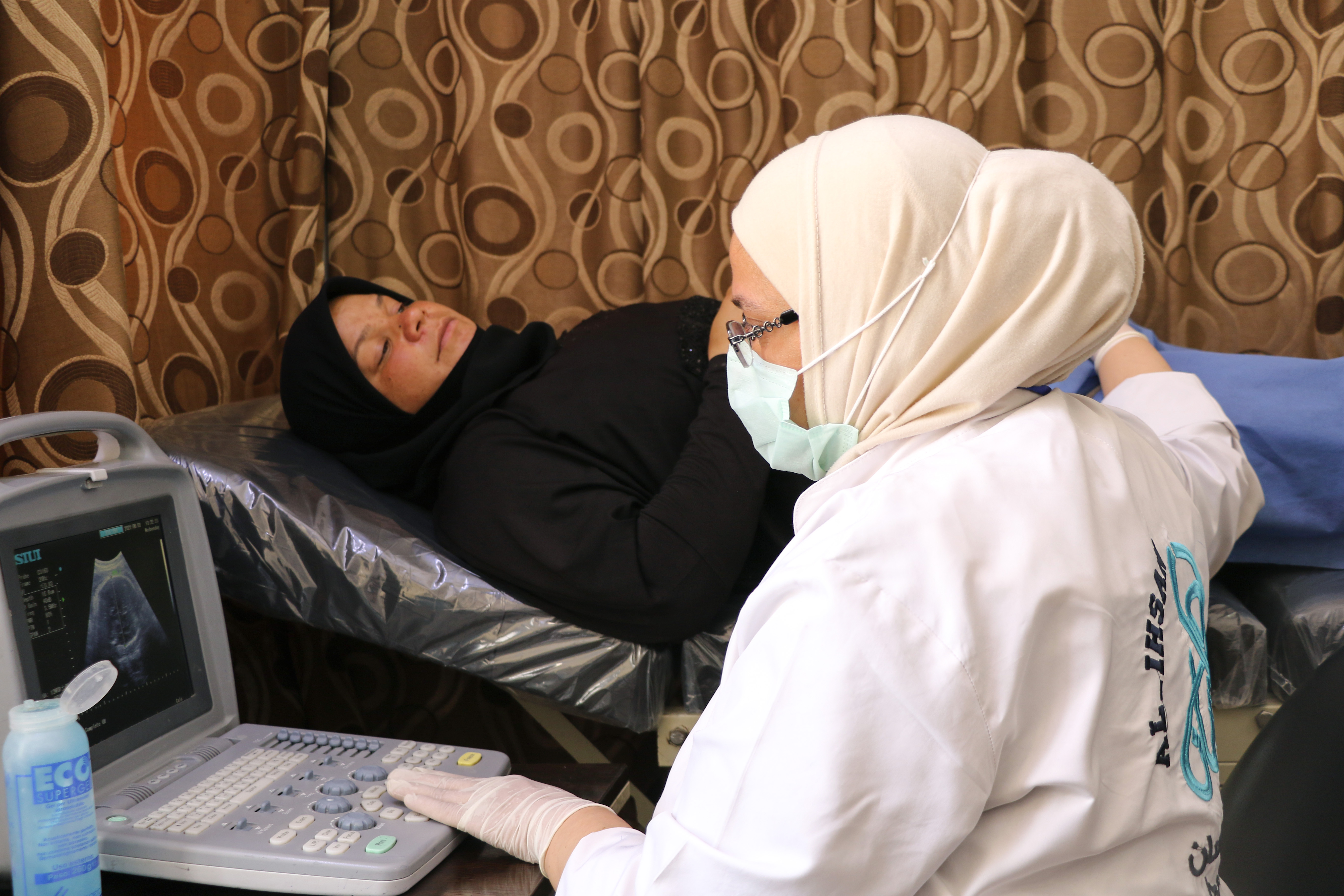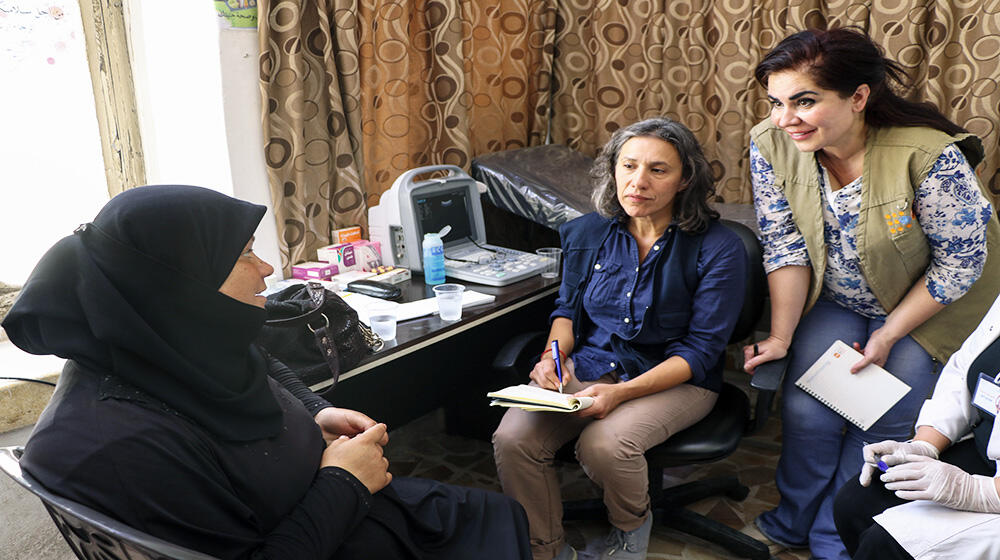Syria, Aleppo, 1st October 2022
“We were displaced for 6 months,” says Amineh. “But in a way, although it is safer and we no longer fear bombardments, things are harder because of the high cost.” Amineh started telling us her story
Amineh’s monthly appointment coincides with a medical checkup by a mobile reproductive health team. To help women in a vulnerable situation, the European Union has decided to fund this joint WFP-UNFPA action.
“I come every month to the organization to check on my baby and recharge the voucher, thanks God for the voucher, it helps me to buy things I couldn’t get before.” Amineh said in the old city of Aleppo on her way to her monthly appointment with the doctor.

Supporting women and girls to access vital sexual reproductive health services throughout Syria . ©UNFPA- Syria
The mobile teams doctor gives her a full check-up, and if she needs anything she would give it to her, she will give her a physical examination and reassures me the baby is doing well.
“Receiving the voucher is a good thing, whatever I feel like having, I am buying now. Thank God, I am benefiting from this voucher a lot. And I wish it lasts longer”, Amineh said
With the European Union’s fund, the UNFPA continue to help vulnerable mothers like Amineh with free reproductive healthcare & cash assistance.
Hyperinflation has plunged almost the entire Syrian population into poverty and food insecurity. Meanwhile, the crisis, the brain drain of health workers, and the destruction of health facilities have contributed to a drastic situation in Syria.
“We are a reproductive health team dedicated to pregnant women. We monitor the pregnancy and give all needed vitamins. Of course, we follow up on women during their pregnancy and special cases we refer them for x-rays if required”. Dr. Wafaa Zein Eddin – the mobile team Gynecologist, explained the type of service they provide to support the pregnant women.
“In this center we support pregnant and lactating women through different activities such as supporting their reproductive health, which is also complemented by the vouchers, these vouchers include items that are becoming very essential”. Amin Kalpakjian – EU Humanitarian Aid Officer in Syria stated.

A reproductive health team dedicated to pregnant women. ©UNFPA- Syria
The programmes made possible through UNFPA’s partnership with the EU are providing irreplaceable lifelines to individuals and communities throughout the country, allowing women and girls to access vital sexual reproductive health services as well as tailored programming for those at risk or survivors of Gender Based Violence.
With the support of the EU, WFP and UNFPA are able to help 13.539 pregnant and breastfeeding women in Aleppo in 2022. The support provided by the European Union has also proven crucial to delivering essential services to people in need in Syria,
As in previous years, UNFPA is immensely grateful to the European Union for its unwavering support of vital programmes in Syria during 2022, a year that continues to bring ever-growing challenges.
With humanitarian needs at an all-time high, the EU & UNFPA are committed to maintain a humanitarian lifeline for Syrian women and girls across the country, regardless of whether they are displaced or back home.”
2022 marked another grim milestone for Syrians as the crisis entered its 12th year. For women and girls, the cumulative impact has been catastrophic, upending decades of progress on women’s issues and bringing unprecedented risks that have fundamentally altered their lives. The crisis remains one of the world’s most complex humanitarian and protection emergencies. An estimated 14.6 million people – half of them women and girls – are in need of assistance.


